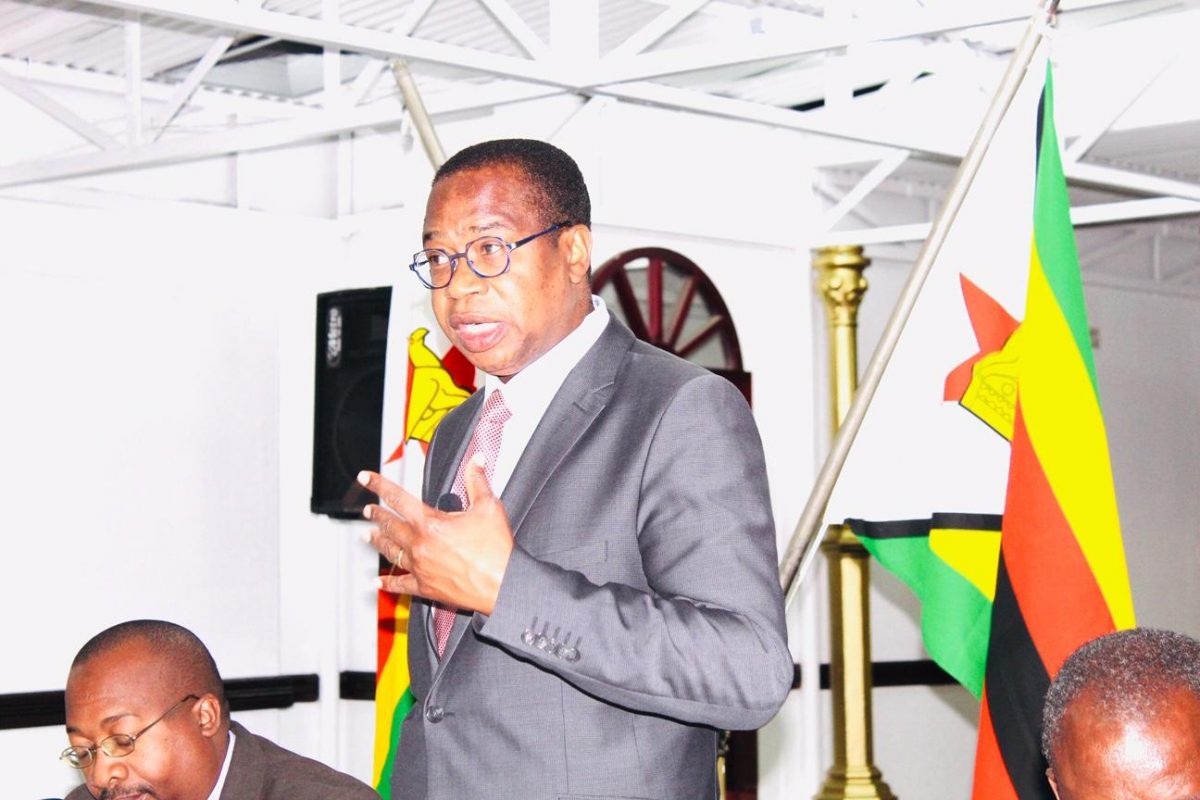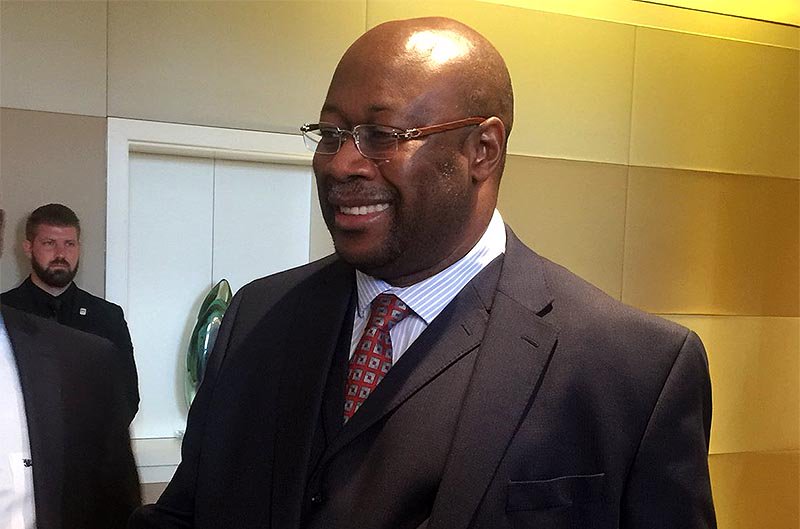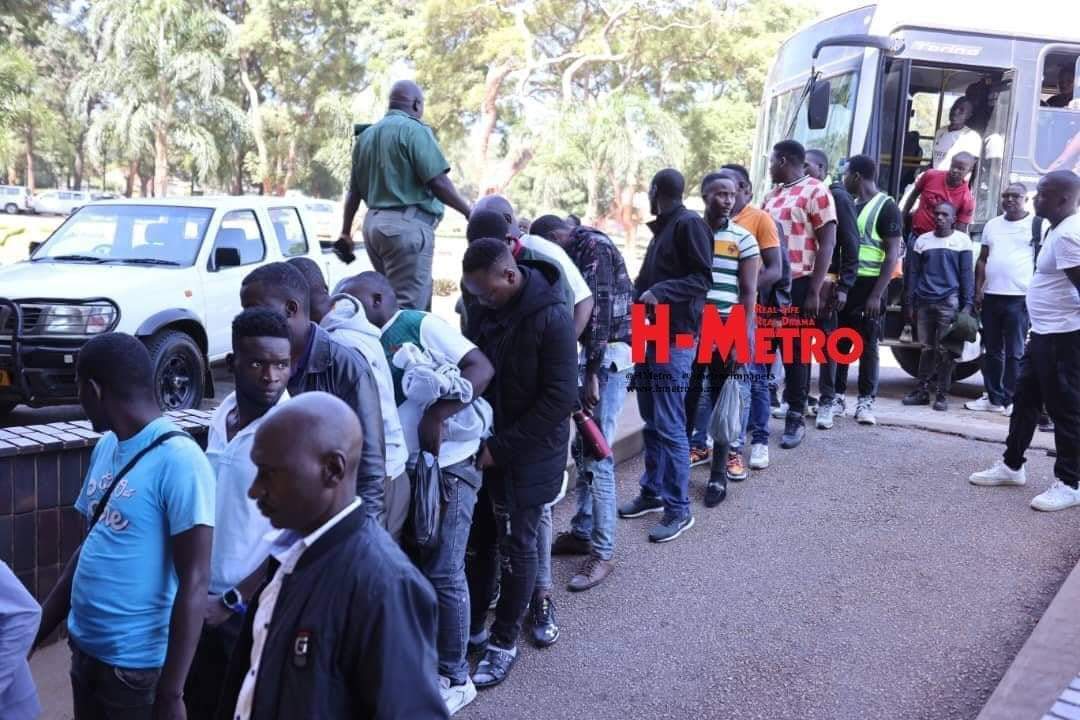HARARE – Zimbabwe will adopt a “managed float” exchange rate regime, Finance Minister Mthuli Ncube said on Wednesday, abandoning strict control of foreign exchange by the central bank in the latest in a series of currency reforms that have so far failed.
The country, which has seen bouts of hyperinflation since 2008, has taken steps to ease its heavy reliance on the United States dollar.
Last June, it made its interim currency the country’s sole legal tender, ending a decade of dollarisation and taking another step towards relaunching the Zimbabwean dollar.
The central bank has controlled the interbank forex trading market, which was introduced in February 2019.
The latest move will see banks take a bigger role in foreign currency trades, narrowing the gap with the unofficial market by allowing trade on a more transparent platform.
On Wednesday, the Zimbabwe dollar was trading at 18.26 against the United States dollar on the official interbank market and at around 40 to the greenback on the black market.
“Zimbabwe has had no transparent and effective foreign exchange trading platform for a long time. Consequently, official rates have not been effectively determined, while a thriving parallel market has developed,” Finance Minister Ncube told reporters in Harare.
He said an electronic forex trading platform was being put in place immediately.
“Banks will be the market makers. The Reuters system will generate a daily exchange rate in an AM and PM fix. Banks will charge Bureaux very thin margins on transactions which are routed through them as the authorised dealers,” Ncube said.
“This platform will allow foreign exchange to be traded freely among banks and permit a true market exchange rate to be determined.”
Economic analyst Batanai Matsika of securities firm Morgan & Co described the policy shift as a desperate measure.
“This demonstrates the desperation of the authorities to deal with the widening gap between the official and parallel market exchange rates,” Matsika said.
“But it does not address the fundamental issue, which is the supply of forex. In a managed float, you need reserves to intervene in the market. The government does not have that. We
Economic commentator Brains Muchemwa said the latest policy might not succeed in stabilising the exchange rate if the government did not maintain fiscal discipline.
Ncube insisted that the government had managed to control its spending and had a fiscal surplus of 3.1 billion Zimbabwean dollars (US$172 million) at the end of February.
Last month, the International Monetary Fund (IMF) warned that delays by Zimbabwe in implementing foreign exchange and monetary reforms risked undermining the new currency and the government’s reengagement internationally on debt arrears.
On Wednesday, Ncube also announced a new taskforce, which he will chair, to implement policy reforms aimed at stabilising the exchange rate and curbing inflation, which reached 521 percent at the end of 2019, according to the IMF.
“The taskforce will be chaired by the minister of finance and will meet at least once a week to review the conditions in the markets, monitor the behaviour of key variables such as the exchange rate and inflation,” Ncube said. “The taskforce will put in place additional policy measures where necessary.”
Ncube said the central bank will also introduce minimum interest rates on all deposits, including trust accounts underpinning mobile banking wallets, to incentivise savings and encourage holding of the domestic currency.
The treasury boss said the government will introduce stiffer penalties to curb trade on the parallel market as well as crimes relating to foreign exchange and financial fraud.
“The government will be reviewing all the laws and institutional framework in order to bring them in line with international best practices and, more importantly, monitor the effectiveness of institutions charged with implementing the laws,” Ncube said
He said measures will be taken to curb the abuse of mobile money platforms by placing limits on daily bulk payer transactions as well as ensuring compliance with the 2 percent tax on bulk transactions.
Ncube said the government will levy all taxes, duties and other government fees – some of which are being currently charged in forex – in local currency in “a phased but time-bound manner”. – Reuters















